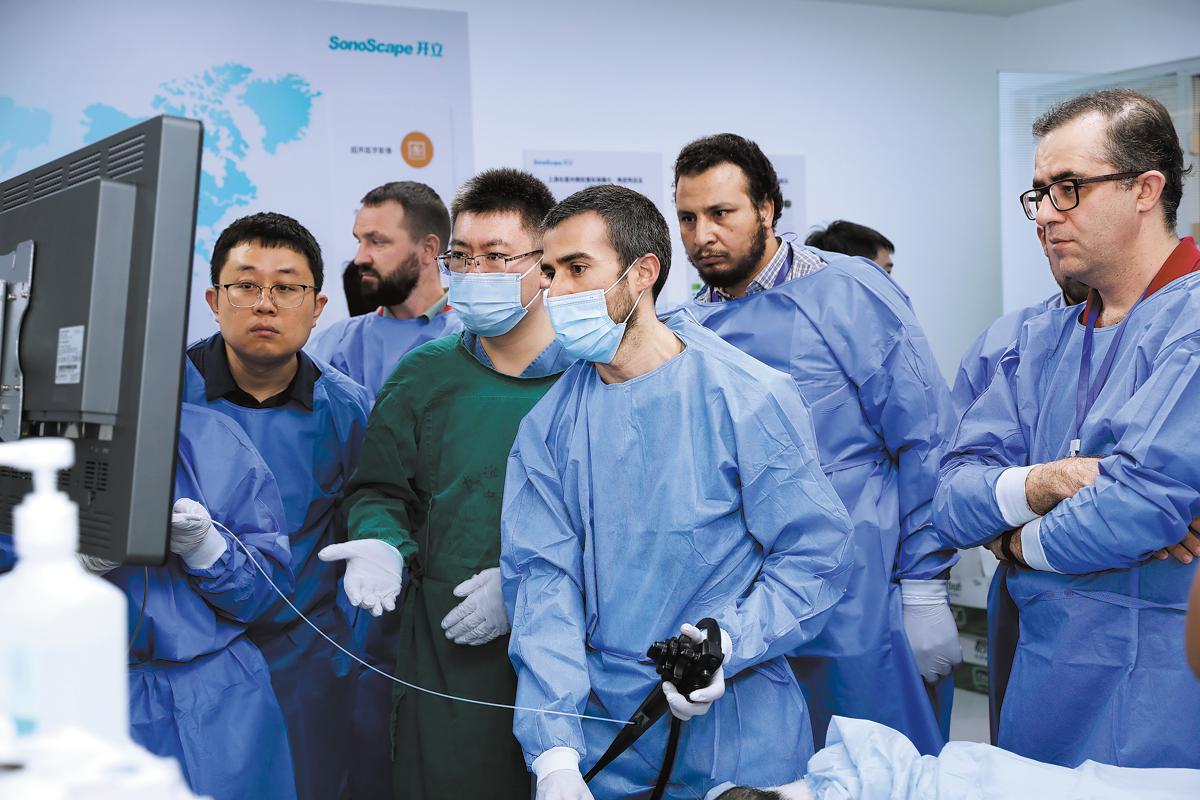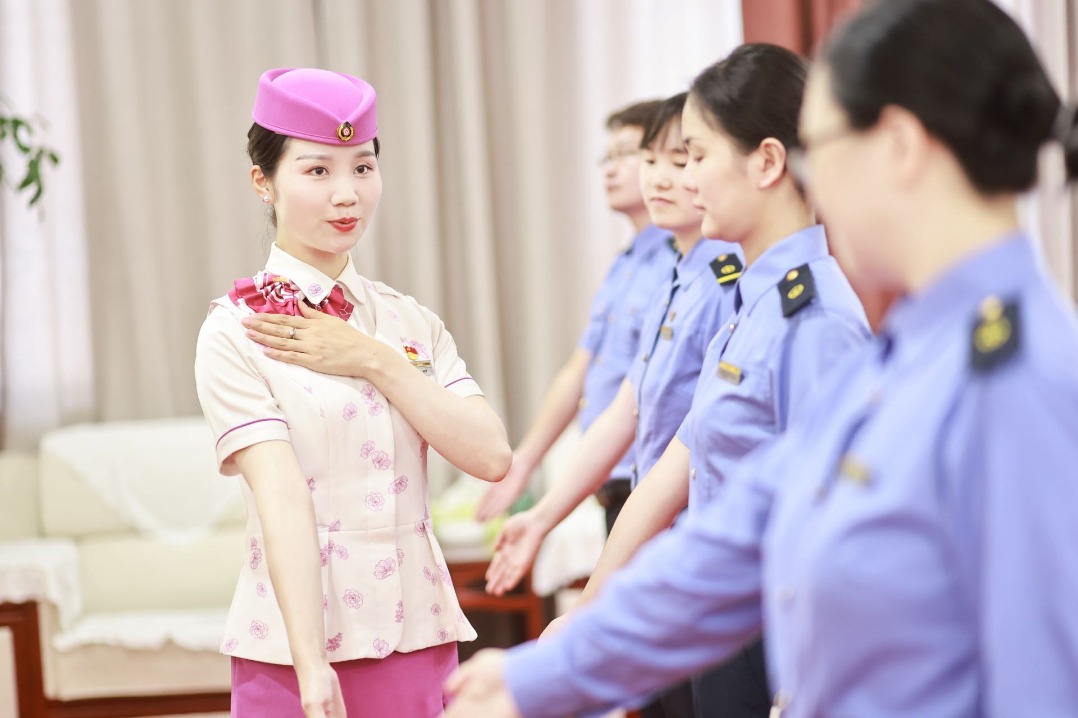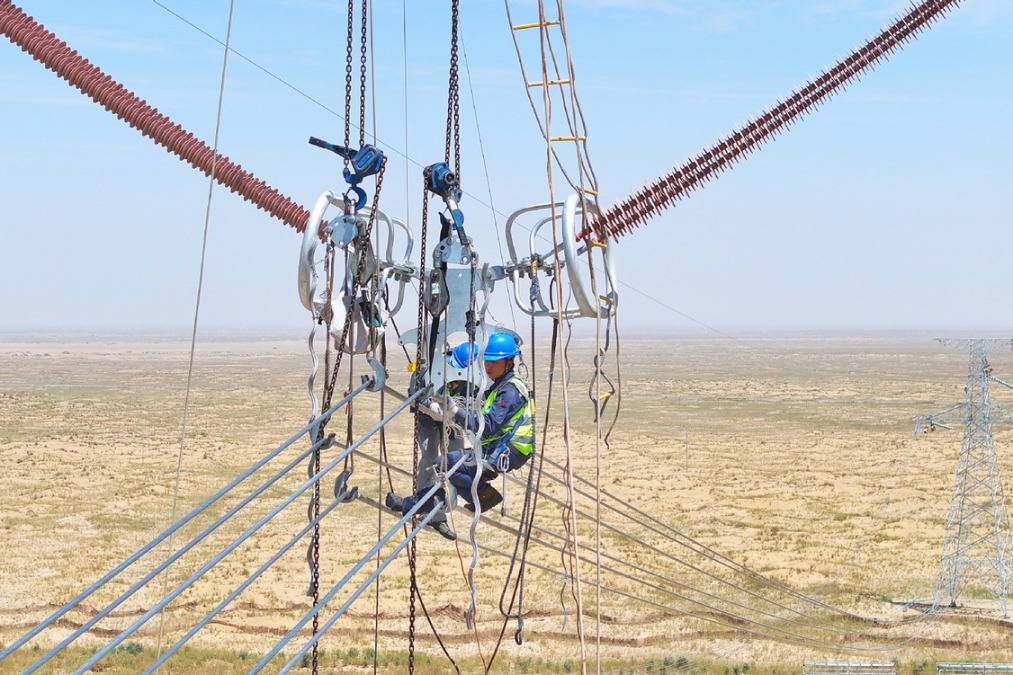BRI exchanges share healthcare expertise
Physicians from six countries take part in endoscopy training in Beijing


Despite the air conditioner being on full blast to counter the sweltering heat, sweat droplets lingered on the foreheads of doctors at a simulation facility in Beijing in June, as physician Mustafa Ahmed Haridy Abdellah slowly navigated an endoscope through the digestive tract of an anesthetized pig to identify a malignant lesion.
Observed by a team of physicians and interpreters, the 35-year-old Egyptian doctor had just taken over the device from Sergei Skupchenko, Abdellah's Russian peer, who had carefully threaded the endoscope into the pig. As Abdellah identified the lesion via a live feed, he delicately began to snip away to remove the infected tissue with millimeter precision.
Under the guidance of senior Chinese endoscopists, Abdellah completed the procedure, an act that was met with a hushed round of applause from the observing physicians, before collecting a specimen and handing over the controls.
For Abdellah, he'd never had to travel so far to practice such a procedure, but when he first heard about the opportunity, he jumped at it.
"I first took a train to Cairo, then a flight from Cairo to Dubai. I stayed at the airport for about three hours before getting on another flight to Beijing," he said. "It took me a total of 40 hours from my home to the operating room in Beijing.
"The only thing that made the long trip easier for me was knowing that I will be learning something new here," he said. "Now that I am here, I am truly happy to see these doctors and officers giving us the education."
Abdellah was among 16 physicians from six countries involved in the Belt and Road Initiative who participated in a five-day intensive training program from June 9 to 13 in Beijing. The doctors were from Iran, Egypt, Russia, Portugal, Thailand and the Philippines.
The event, the seventh Belt and Road International Advanced Gastrointestinal Endoscopology Seminar, focused on gastrointestinal endoscopy training — a minimally invasive procedure that allows doctors to examine the digestive tract and treat disorders, including early-stage cancers, using an endoscope.
It was jointly hosted by the Beijing Friendship Hospital affiliated to Capital Medical University, the National Clinical Research Center for Digestive Diseases and domestic medical equipment manufacturer SonoScape, headquartered in Shenzhen, Guangdong province.
Zhang Shutian, president of the hospital, said that through the program, foreign trainees progressed from computer simulations and mechanical models to animal-based practice and clinical training.
"Each workshop edition accepts no more than 20 international medical professionals to ensure hands-on experience for every participant," he said. "Our aim is to help junior endoscopists achieve proficiency in gastrointestinal endoscopy, while experienced practitioners can refine and standardize their techniques."
- BRI exchanges share healthcare expertise
- Increasingly, couples marrying at unique venues
- Blind Tibetan opens horizon to wide world of opportunities
- Gen Z farmers mirror modern face of agriculture
- Medical progress rises to meet global standards
- With 'smoke, fire and steam', night markets erupt into life





































